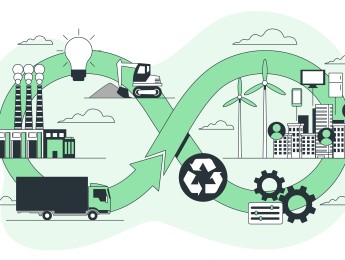This comprehensive course offers an in-depth exploration of Geographic Information Systems (GIS), focusing on their application in sustainable development. Over five days, participants will gain expertise in GIS tools and techniques, enabling them to analyse spatial data effectively and make informed decisions to promote sustainability. The course emphasises practical applications and real-world case studies, ensuring participants can apply what they have learned directly to their professional roles.
Upon completion of this course, participants will be able to:
- Understand the core principles of GIS and its role in sustainable development.
- Gain proficiency in GIS software for data collection, management, analysis, and visualisation.
- Apply GIS techniques to environmental management and sustainable development projects.
- Develop the ability to interpret and communicate spatial data effectively.
- Explore advanced GIS applications and stay updated with emerging trends.
This course is intended for
- Environmental and Sustainability Professionals
- Urban and Regional Planners
- Researchers and Academics in Geography and Environmental Sciences
- Policy Makers and Government Officials
- Professionals in Natural Resource Management
- Anyone interested in enhancing their GIS skills for sustainable development
This course employs a blend of interactive lectures, hands-on exercises, and group discussions. Participants will engage in practical sessions using leading GIS software, ensuring a thorough understanding of the tools and techniques. Case studies and real-world examples will be used to illustrate key concepts. Collaborative projects and peer reviews will foster a dynamic and engaging learning environment.
Day 5 of each course is reserved for a Q&A session, which may occur off-site. For 10-day courses, this also applies to day 10
Section 1: Introduction to GIS and Sustainable Development
- Overview of GIS: Definitions and Key Concepts
- Importance of GIS in Sustainable Development
- Introduction to GIS Software and Tools
Section 2: Spatial Data Collection and Management
- Methods of Spatial Data Collection
- Data Management and Quality Control
- Hands-on Session: Collecting and Managing Spatial Data
Section 3: Spatial Analysis and Visualisation
- Fundamentals of Spatial Analysis
- Advanced Spatial Analysis Techniques
- Visualisation of Spatial Data using GIS Tools
- Practical Exercise: Spatial Analysis and Mapping
Section 4: GIS Applications in Environmental Management
- GIS for Environmental Monitoring and Assessment
- Case Studies: GIS in Biodiversity Conservation, Climate Change, and Natural Resource Management
- Workshop: Applying GIS to Environmental Projects
Section 5: Advanced GIS Applications and Future Trends
- Emerging Trends in GIS Technology
- Integration of GIS with Other Technologies (e.g., Remote Sensing, AI)
- Final Project: Developing a GIS-based Sustainable Development Plan
Upon successful completion of this training course, delegates will be awarded a Holistique Training Certificate of Completion. For those who attend and complete the online training course, a Holistique Training e-Certificate will be provided.
Holistique Training Certificates are accredited by the British Assessment Council (BAC) and The CPD Certification Service (CPD), and are certified under ISO 9001, ISO 21001, and ISO 29993 standards.
CPD credits for this course are granted by our Certificates and will be reflected on the Holistique Training Certificate of Completion. In accordance with the standards of The CPD Certification Service, one CPD credit is awarded per hour of course attendance. A maximum of 50 CPD credits can be claimed for any single course we currently offer.
- Course Code IND04 - 127
- Course Format Classroom, Online,
- Duration 5 days













